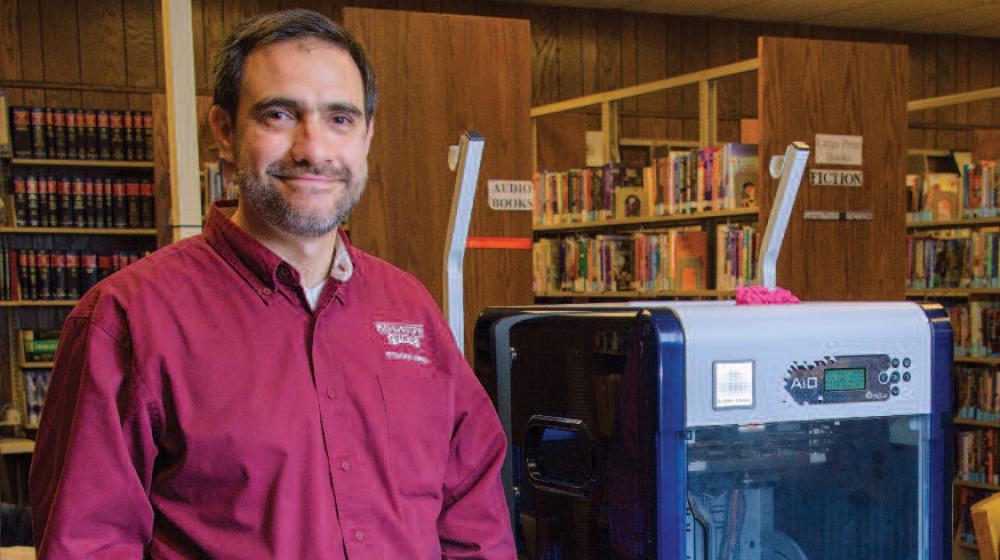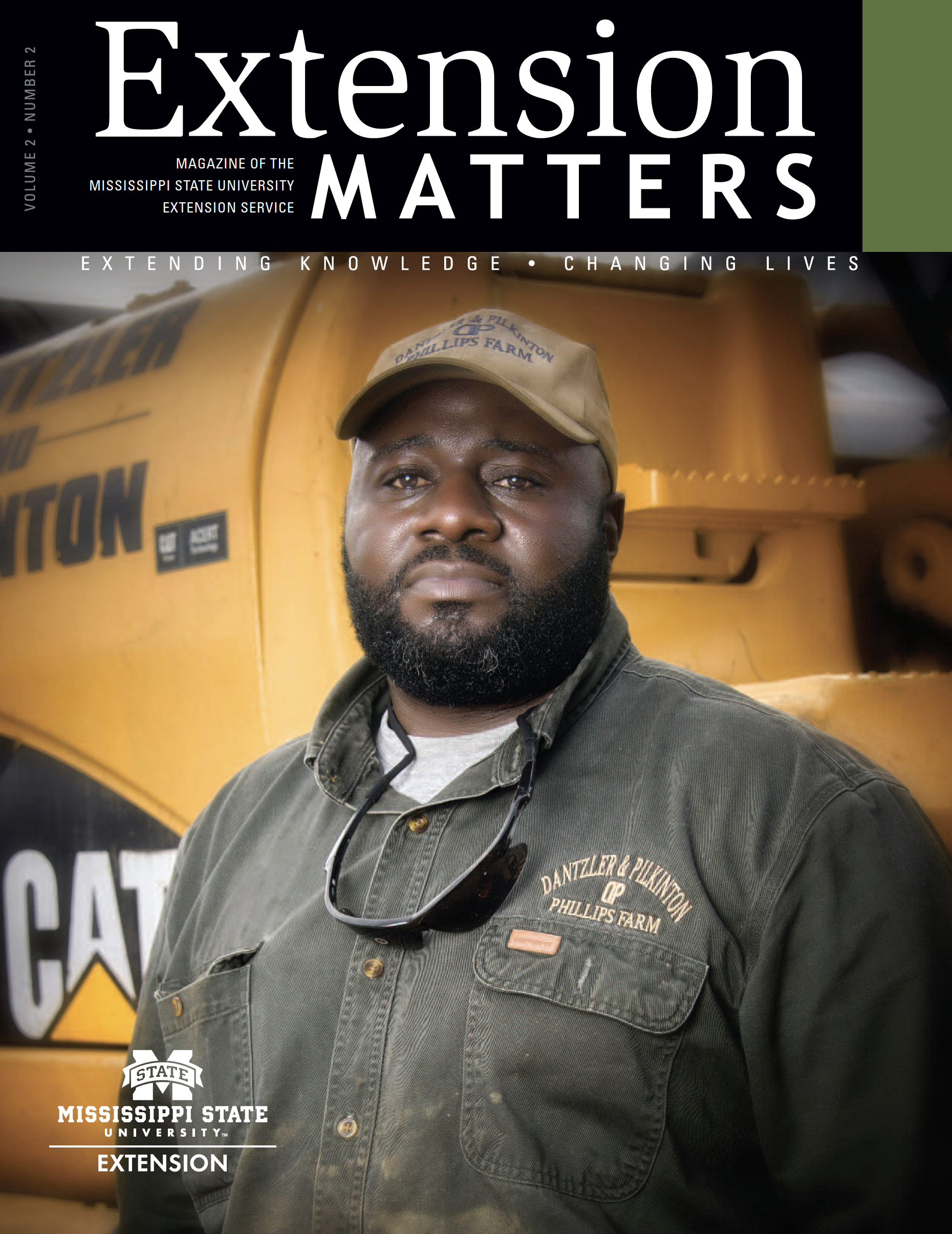Extension Where You Are

Roberto Gallardo, director of the Intelligent Community Institute
Extension Where You Are
With about 2,300 residents, Quitman is the smallest town in the world to offer its residents 1 gigabit-per-second broadband.
Local children, adults, and businesses have recently begun reaping the many benefits that high-speed Internet offers, says Quitman Mayor Eddie Fulton.
“Our connection is 100 times faster than the national average,” he reveals. “Almost 1,900 Quitman residents, or more than 80 percent of our total population, have 1G service; it first went live in November 2014.
“It’s the connection everyone dreams of.”
And every step of the way, the Mississippi State University Extension Service has been there to support, educate, and encourage Quitman leaders as they make changes, Fulton emphasizes.
The mayor is telling anyone and everyone who’ll listen about Quitman’s success in bridging its former digital divide. He’s also quick to credit Roberto Gallardo, an associate Extension professor and the leader of Extension’s Intelligent Community Institute, part of the worldwide Intelligent Community Forum.
“Roberto comes in with a can-do attitude, and he wants us to be successful,” Fulton says. “The attitude in Quitman has changed and now is can-do, too. Roberto has been a mainstay throughout the process.”
Helping rural Mississippians gain access to today’s technology is his job, and he loves it, Gallardo says. His success in Quitman is one of the peaks, but he’s presented in more than 20 other communities around the state to help connect rural Mississippians.
To him, high-speed Internet access goes far beyond entertainment. It’s the future.
“The Intelligent Community Forum is a worldwide think tank in New York City,” he explains. “It’s working to teach people how broadband can make their lives better. In 2014, I submitted an application to show them that Extension can focus on bringing this message to rural communities.”
Extension’s Intelligent Community Institute was born. Using information from other groups that have successfully bridged the technology gap, Gallardo is able to help communities identify their assets and needs as they work to transition into the digital age.
Gallardo helped provide leadership and direction in Quitman when the community first mobilized to pursue C Spire’s statewide competition, “Fiber to Home.” Despite its small size, the city was one of the first 10 communities in Mississippi to gain access to fiber, Fulton says.
Though Gallardo was skeptical at first that the small town could beat bigger towns to get the coveted fiber connection, he quickly jumped on board when he saw leaders’ and residents’ determination to enter the digital age, Fulton says.
“People need a good workforce; their children need good schools; and we need a diversified community that has a can-do attitude,” he explains. “Attitude is everything, and, with Roberto as a support in our community, our local attitude is that we are a successful city.”
Businesses are expanding, new ones are coming, and residents are actively participating in the global economy, Fulton says. Quitman’s marketplace has already gone international as brick-and-mortar stores have begun promoting and selling their wares online. One women’s clothing store, Simply Irresistible, has almost 9,000 followers on Instagram, and about 90 percent of its sales come from out of town, Fulton says. With 1G, the community is in a great position to develop itself as a call center, Fulton says.
More and more U.S.-based companies are working to provide service from native English speakers, and Quitman now has the resources in place to offer customer service to people all over the country.
Furthermore, Quitman children enjoy almost-immediate access to global educational resources. Teens are participating in simulated job interviews, and children’s early-reading readiness scores are among the highest in Mississippi, Fulton says. Reinforcing educational instruction with games, such as the popular Math Vs Zombies, is also popular in local classrooms.
Gallardo’s work with the Intelligent Community Institute and Forum to bridge the digital divide has made him and the small Mississippi city he’s supporting well-known names in tech-savvy homes across the nation.
Some other major initiatives Extension has overseen in Quitman include a partnership with the public library that led to the placement of a 3D printer. Children can now participate in activities related to science, technology, engineering, and math that they otherwise would not have had, Gallardo emphasizes.
Also, twenty hands-on workshops—ranging from computer and Internet basics to online job searching—reached more than 150 residents and small business owners.
The E-Front Door program was recently piloted in Quitman. The partnership, which included the MSU Department of Communication, allowed university students to analyze Quitman’s online reputation. Young people presented their findings to Quitman stakeholders to assist them in making decisions that will best improve their community’s quality of life.
Not only were Gallardo and his work in Quitman featured in WIRED magazine—which reaches an audience of around 3 million—but Gallardo also recently told the world how he’s working for change in a popular TedX Talk.
“About a third of Mississippi’s residents do not have access to wireline broadband,” he says. “It’s in our DNA at Extension to get out there and change lives. We are doing that by making Mississippians aware of what this technology can do for community economic development.”

